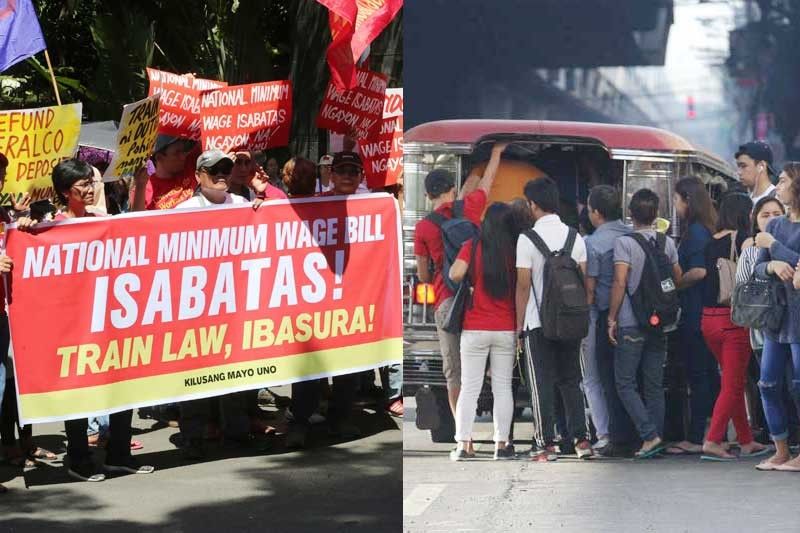Hikes in minimum wage, transport fare influence BSP

MANILA, Philippines — The recent hikes in the minimum wage in Metro Manila and fare hikes for buses and jeepneys likely influenced the central bank’s decision to tighten policy again amid falling oil prices and stabilizing inflation, according to London-based Capital Economics.
The Bangko Sentral ng Pilipinas decided on Thursday to raise policy interest rates anew by 25 basis points as part of proactive steps to curb the rise in inflation.
This brought the total increase in benchmark rates to 175 points in five rate setting meetings since May.
Capital Economics said the policy tightening amid falling oil prices and the stabilization of consumer prices shows concern about heightened inflation expectations. Headline inflation remained unchanged at a nine-year high of 6.7 percent in October from September.
“The BSP’s policy statement again highlighted the bank’s concerns about elevated inflation expectations. We suspect that minimum wage and transport fare hikes over the last month fed into its decision to tighten policy again,” said the economic research firm.
In October, the Land Transportation Franchising and Regulatory Board (LTFRB) approved to make permanent the P1 increased granted in July and an additional P1 for the first four kilometers travelled, raising the minimum fare of P8 to P10.
The LTFRB also granted a provisional P1 hike in bus fares for the first five kilometers. Commuters would be charged another 15 centavos for every succeeding kilometer. This brings the minimum bus fare to P11 from P10 for buses plying Metro Manila and to P13 from P12 for provincial buses.
Both took effect early this month.
Meanwhile, the P25 increase in the minimum wage in the National Capital Region (NCR) was approved by the NCR Regional Tripartite Wages and Productivity Board early this month and will be effective late this month.
Capital Economics noted, however, that the BSP now seems increasingly confident that inflation would begin to ease in the coming months as seen in the lowering of its inflation forecast for 2019 to 3.5 percent from 4.3 percent.
It expects food inflation to fall more quickly in the months ahead as the government increases rice imports and as the rice tariffication bill makes progress in Congress. These measures are seen to shave off 0.4 points from the headline rate.
Fuel price inflation should also begin to moderate as global oil prices begin to ease. The firm expects prices to fall to $55 per barrel by the end of 2019.
After Thursday’s rate hike, Capital Economics expects it to be the last in the current cycle.
“We expect rates to be left unchanged at 4.75 percent until the end of 2019,” it said.
- Latest
- Trending
























